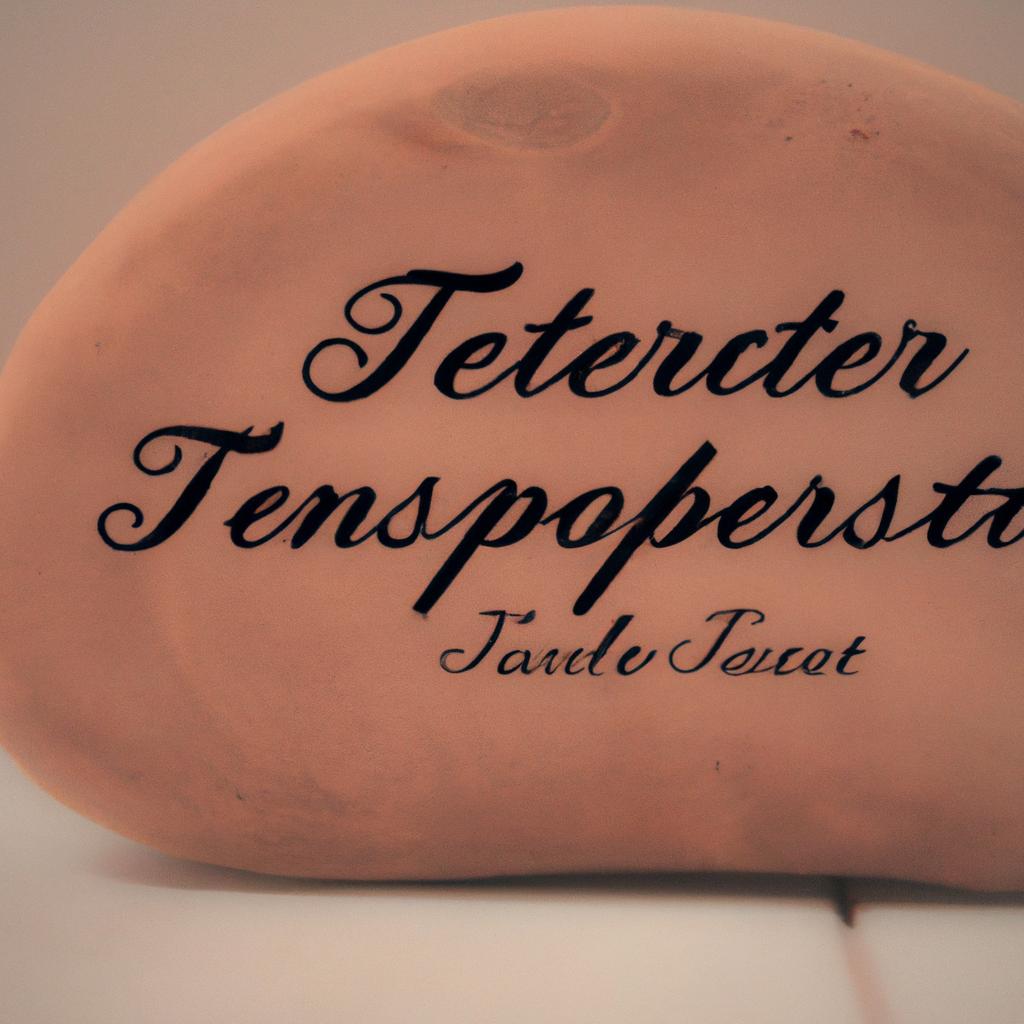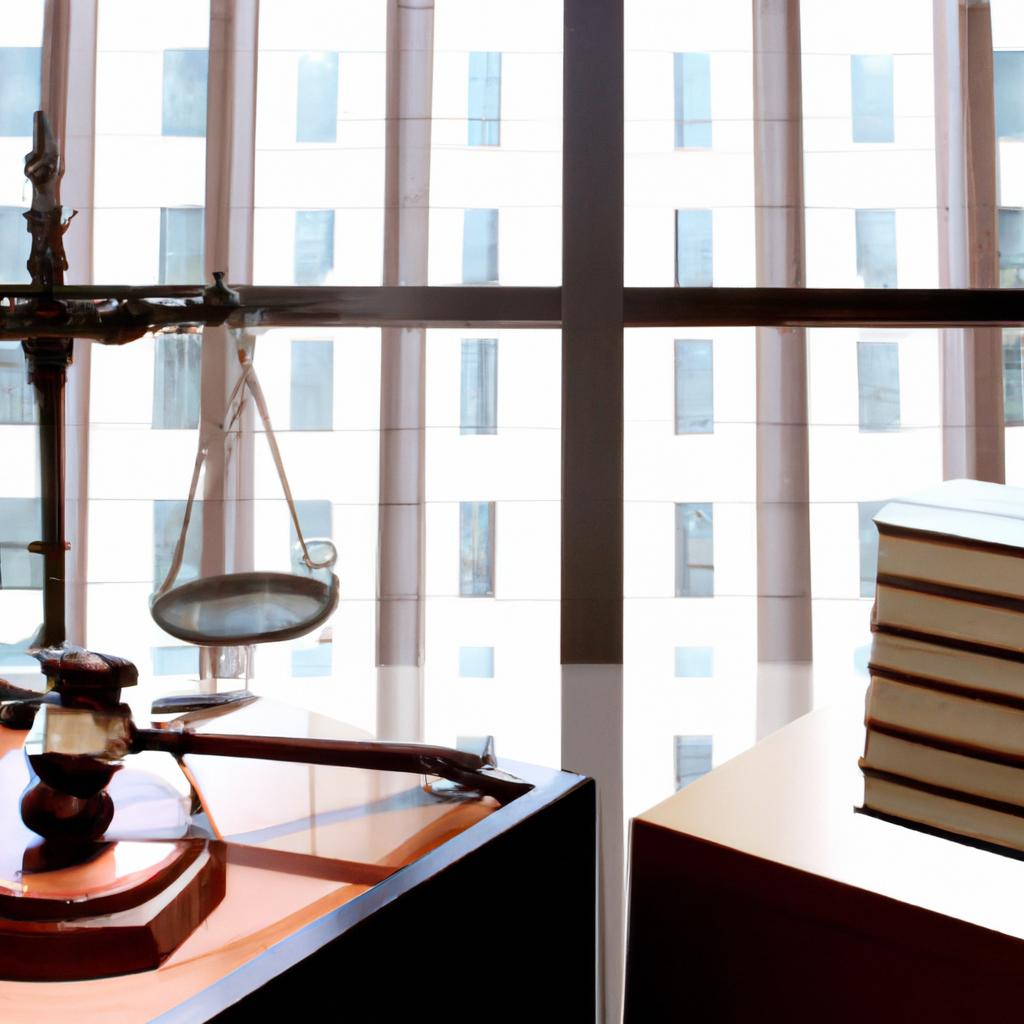In the intricate world of estate planning, the testator of a will stands as a pivotal figure, wielding the power to dictate the distribution of their assets upon their passing. As experienced practitioners in the field of law, we at Morgan Legal Group, situated in the bustling metropolis of New York City, understand the significance of this role and aim to guide our clients through the intricate process of crafting a will with precision and foresight. Join us as we delve into the nuances of this critical aspect of estate planning and unravel the complexities surrounding the testator of a will.
Understanding the Importance of Naming a Testator
When it comes to creating a will, one of the most crucial aspects is naming a testator. The testator of a will is the individual who is creating the document and outlining their wishes for how their assets should be distributed after they pass away. This key role holds significant importance in the legal world, as the testator’s decisions and instructions must be clearly outlined and followed to ensure their wishes are carried out effectively.
**It is essential for the testator to be identified and named correctly in the will document to avoid any confusion or disputes that may arise in the future. By clearly stating who the testator is, it helps to establish the validity and authenticity of the will, ensuring that the wishes outlined within it are legally binding and can be executed as intended. Without a properly named testator, the will could be deemed invalid, leading to the distribution of assets according to state laws rather than the individual’s specific instructions.**

Key Considerations When Choosing a Testator for Your Will
When selecting a testator for your will, it is essential to consider various factors to ensure your wishes are carried out correctly. One crucial consideration is choosing someone who is trustworthy and responsible. The testator plays a vital role in executing your last wishes, so it is crucial to select someone who can handle this responsibility with care and diligence. Additionally, the testator should be someone who is of sound mind and capable of understanding the implications and importance of their role.
Another important factor to consider when choosing a testator is selecting someone who will not have a conflict of interest. It is crucial to choose a testator who does not stand to gain financially from your will or have any personal biases that could affect their ability to carry out your wishes objectively. Furthermore, consider selecting a testator who is in good health and likely to outlive you, as having a testator who predeceases you could complicate the execution of your will.

Potential Implications of Designating an Inappropriate Testator
Designating an inappropriate testator for a will can have significant implications on the validity and execution of the document. One major concern is the potential for the will to be contested by disgruntled heirs or beneficiaries who may argue that the testator was not of sound mind or lacked the capacity to make informed decisions at the time of drafting the will. This can lead to lengthy and costly legal battles, delaying the distribution of assets and causing unnecessary stress for all parties involved.
Furthermore, an inappropriate testator may not fully understand the legal implications of their decisions, leading to unintended consequences such as disinheriting rightful heirs, leaving assets to individuals who do not deserve or need them, or failing to provide for dependents. It is crucial to carefully consider the mental and emotional capacity of the testator, as well as their understanding of the law and their own estate, in order to prevent any misunderstandings or disputes from arising in the future.

Consulting with Experienced Legal Professionals for Testator Selection
When , it is essential to carefully consider who will serve as the testator of a will. The testator, often referred to as the maker or creator of the will, is the individual who creates and signs the will, outlining their wishes for the distribution of their assets upon their passing. Selecting the right testator is a crucial decision that can have lasting implications for the distribution of the estate and the fulfillment of the testator’s final wishes.
At Morgan Legal Group, our team of experienced estate planning attorneys can provide guidance and advice on selecting the appropriate testator for your will. We understand the importance of choosing a testator who is competent, responsible, and trustworthy to ensure that your wishes are carried out accurately and efficiently. By working with our knowledgeable legal professionals, you can rest assured that your estate planning needs are in capable hands, and your final wishes will be respected and upheld. Contact us today to schedule a consultation and start the estate planning process with confidence and peace of mind.
| Name | Role |
|---|---|
| John Smith | Estate Planning Attorney |
| Jane Doe | Probate Lawyer |
| Michael Johnson | Elder Law Specialist |
Q&A
Q: Who is the testator of a will?
A: The testator of a will is the person who creates the will and outlines how they want their assets to be distributed after their passing.
Q: Can the testator be anyone?
A: Yes, the testator can be any competent adult who is of sound mind and not under any undue influence.
Q: What happens if someone tries to contest the validity of a testator’s will?
A: If someone contests the validity of a testator’s will, it may result in a legal battle where the court will ultimately determine if the will is valid or not.
Q: Is it necessary for the testator to have witnesses when creating a will?
A: It is not always necessary for the testator to have witnesses when creating a will, but having witnesses can help validate the will’s authenticity and prevent disputes later on.
Q: Can the testator make changes to their will after it has been created?
A: Yes, the testator can make changes to their will at any time by creating a new will or adding a codicil to the existing will. It is important to ensure that any changes are properly documented to avoid confusion or disputes.
Final Thoughts
In conclusion, the testator of a will holds the power to shape the legacy they leave behind. By carefully considering their wishes and intentions, they can ensure that their loved ones are taken care of and their assets are distributed according to their desires. It is a responsibility that carries great importance and should not be taken lightly. Ultimately, the testator’s decisions will have a lasting impact on their loved ones and future generations to come.
 Title: Understanding the Testator of a Will: Who It Is and Their Role
Title: Understanding the Testator of a Will: Who It Is and Their Role
Meta Title: The Testator of a Will: What You Need to Know
Meta Description: The testator of a will is an essential individual in the estate planning process. Discover their role and responsibilities in this comprehensive guide, including practical tips and case studies.
The testator of a will is a crucial figure in the legal and financial planning process. This person holds great responsibility in ensuring their estate is distributed according to their wishes after their passing. Understanding the role of the testator is essential whether you are planning your own estate or have been named as a testator for someone else’s will.
In this article, we will delve into the definition, responsibilities, and importance of the testator of a will, as well as provide practical tips and real-life case studies to help you gain a comprehensive understanding of this significant role in estate planning.
What is a Testator?
A testator is a person who creates a will, also known as a “last will and testament.” This individual is also referred to as the “testatrix” if they are a woman. The testator is the legal owner of the assets and property included in the will and has the right to distribute them as they see fit.
It is essential to note that a testator must have the mental capacity to create a will, meaning they must understand the nature and consequences of their decisions. If there are doubts about their mental capacity, the will may be contested in court. Therefore, it is crucial for the testator to be of sound mind when creating their will.
The Role of the Testator in Estate Planning
The primary role of the testator is to create and execute a valid will that outlines how their assets and property should be distributed after their death. This process involves making important decisions and considering various factors, such as family dynamics, financial obligations, and taxation laws. Additionally, the testator must appoint an executor, who will be responsible for carrying out the instructions outlined in the will.
Practical Tips for Testators
If you are planning to create your own will, here are some practical tips to guide and assist you in the process:
1. Start with an inventory of your assets and liabilities.
Before creating a will, it is essential to have a clear understanding of your assets and liabilities to ensure everything is included in the document. This may include bank accounts, properties, investments, business interests, and debts.
2. Consider all potential scenarios.
When drafting a will, it is vital to consider all potential scenarios, including unforeseen events such as incapacitation or a sudden change in family dynamics. This will ensure that your will remains valid and can accommodate any changes in your circumstances.
3. Seek professional assistance.
Creating a will can be a complex process, and it is crucial to seek professional assistance from a lawyer or an estate planner to ensure your will is legally valid and reflects your wishes accurately.
Real-Life Case Studies
Let’s take a look at some real-life scenarios where the role of the testator played a significant role in estate planning:
1. The Importance of Naming an Executor
In a scenario where a testator failed to name an executor, the court had to step in and appoint one. This caused delays, additional expenses, and potential conflicts among beneficiaries. Naming an executor in a will is crucial to ensure a smooth and efficient distribution of assets.
2. The Role of a Testator in Blended Families
In another case, a testator with a blended family failed to consider the potential conflicts among stepchildren and children from previous marriages. This resulted in legal disputes and a delay in distributing assets. It is vital for testators in such situations to address potential conflicts and communicate their wishes clearly in the will.
3. Mental Capacity and Testamentary Capacity
In a case where a testator was diagnosed with dementia before creating their will, the court declared the will invalid, and the estate was distributed according to the previous will. This highlights the importance of mental capacity and testamentary capacity when creating a will to ensure it cannot be contested in court.
In conclusion, the testator of a will is a critical figure in the estate planning process. Their role involves creating a legally valid document that outlines the distribution of their assets and property after their death. It is crucial for testators to be of sound mind when creating a will and to consider all potential scenarios to avoid legal disputes and ensure their wishes are carried out accurately. Seeking professional assistance and learning from real-life case studies can further aid testators in their important role.


